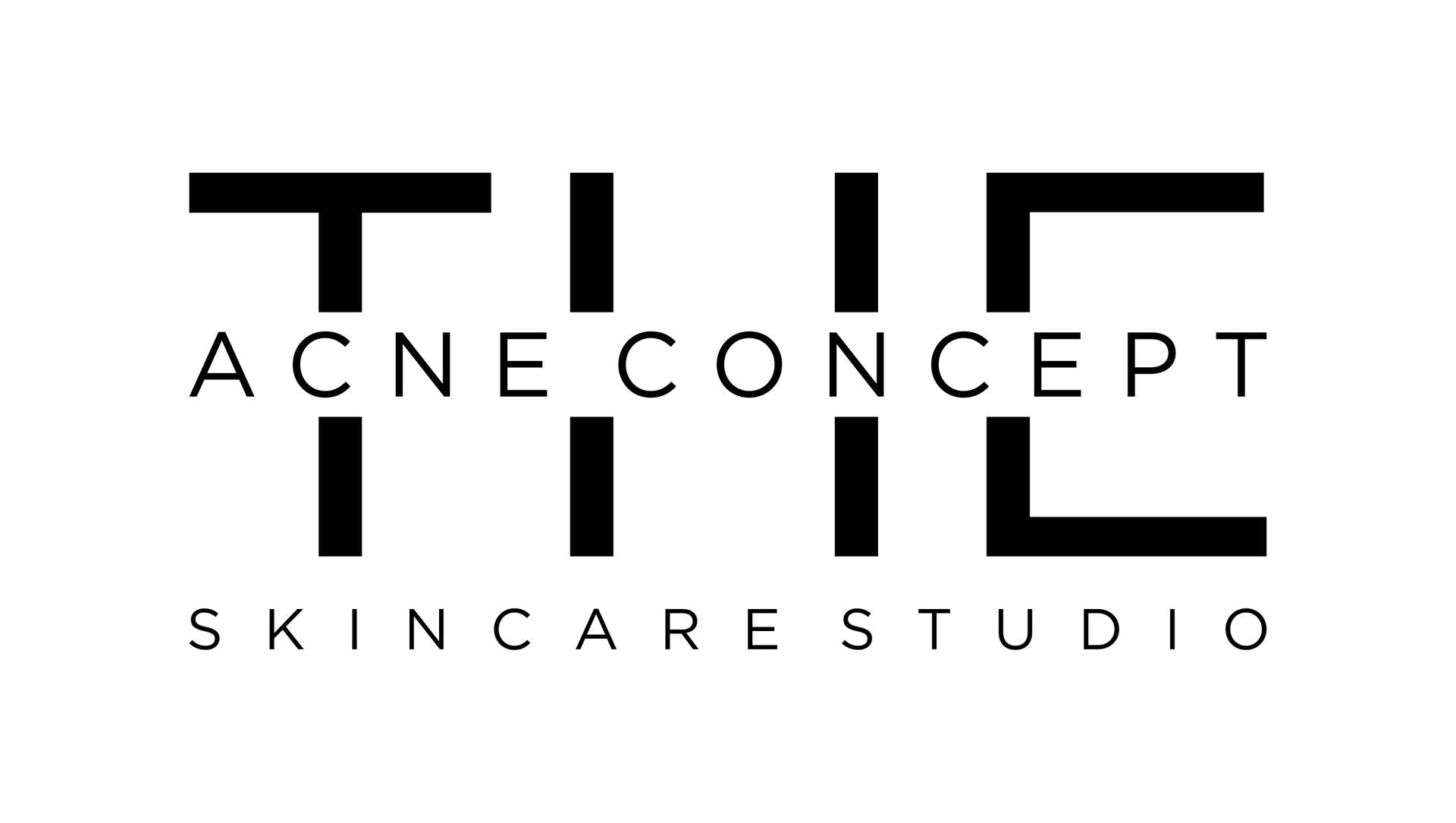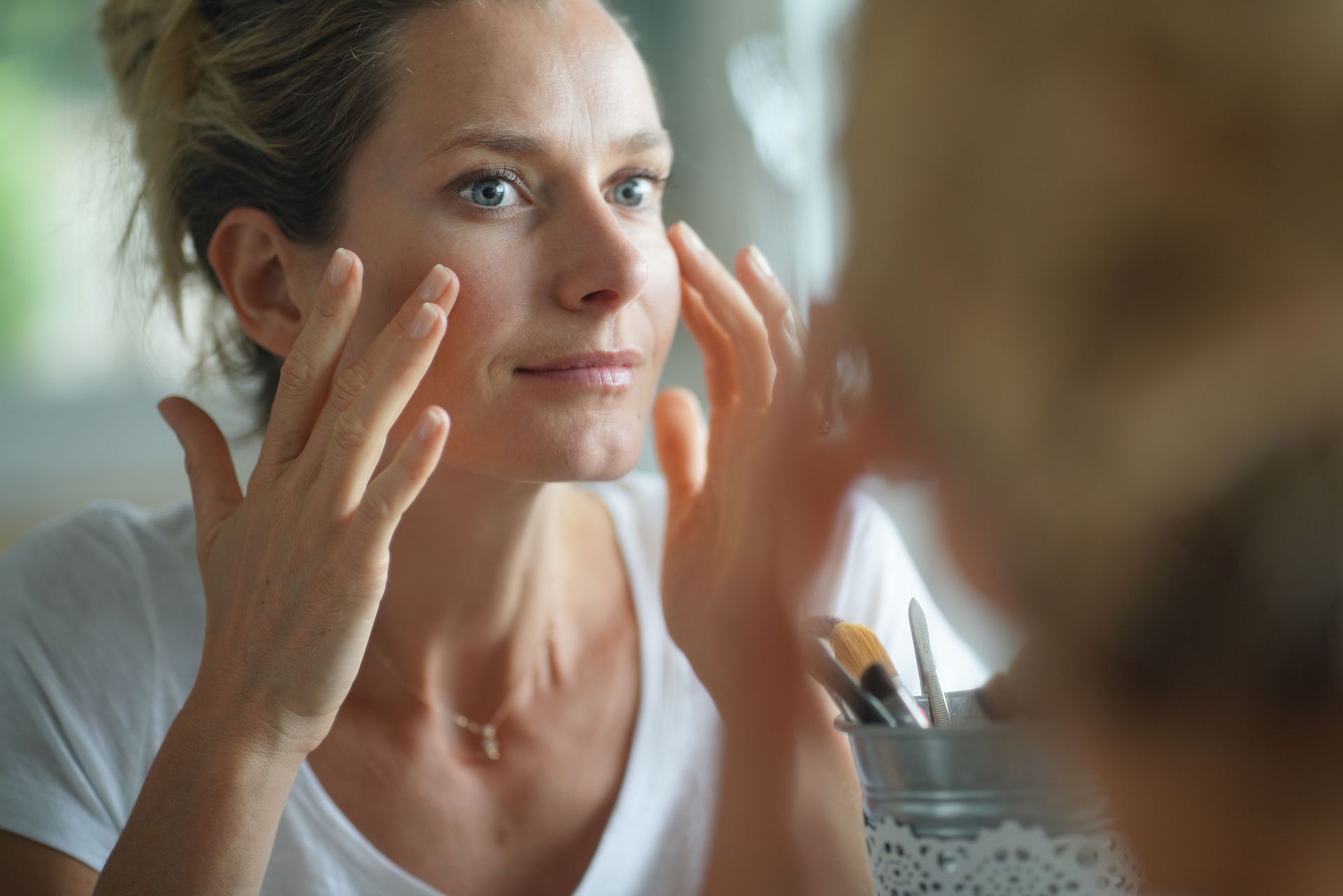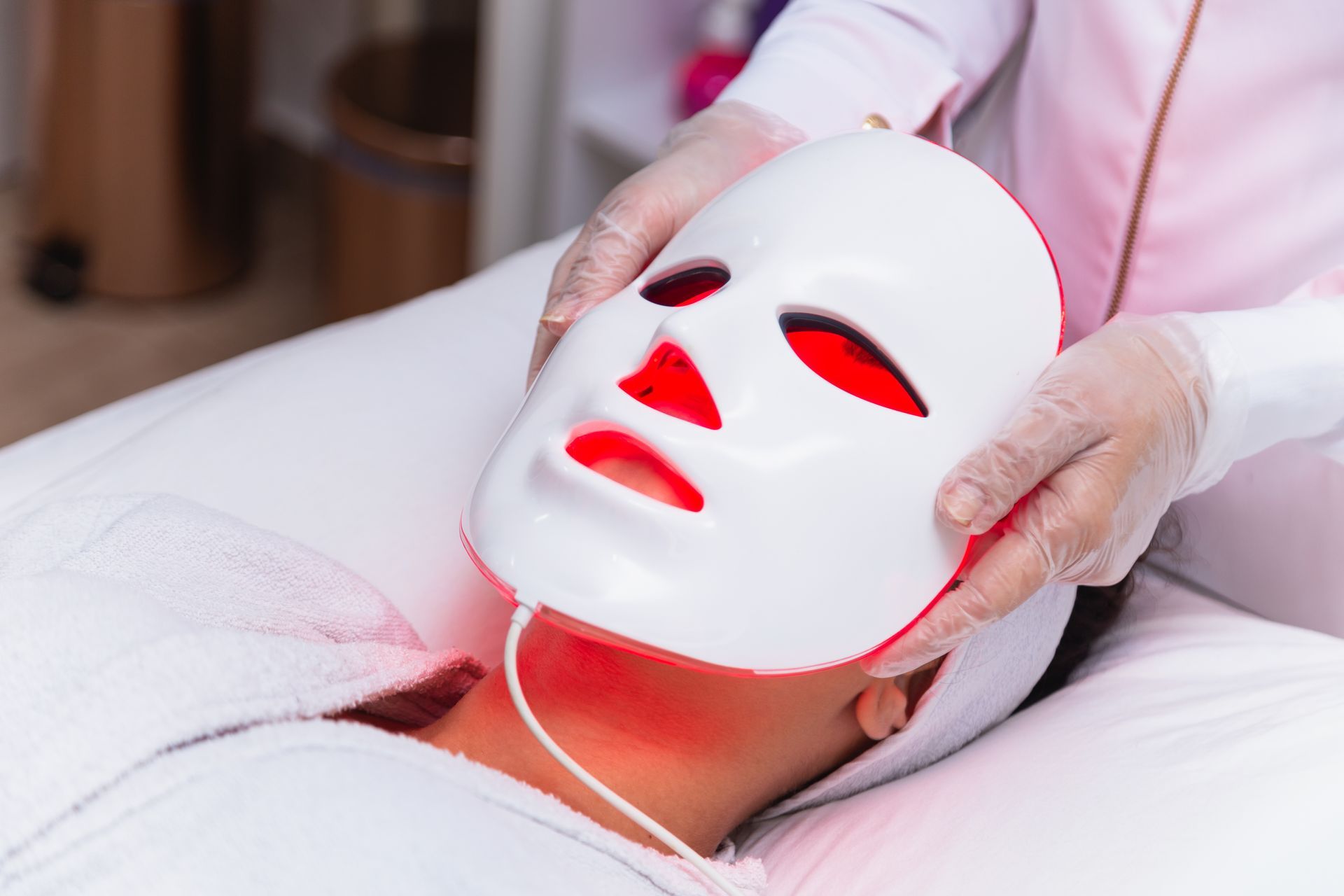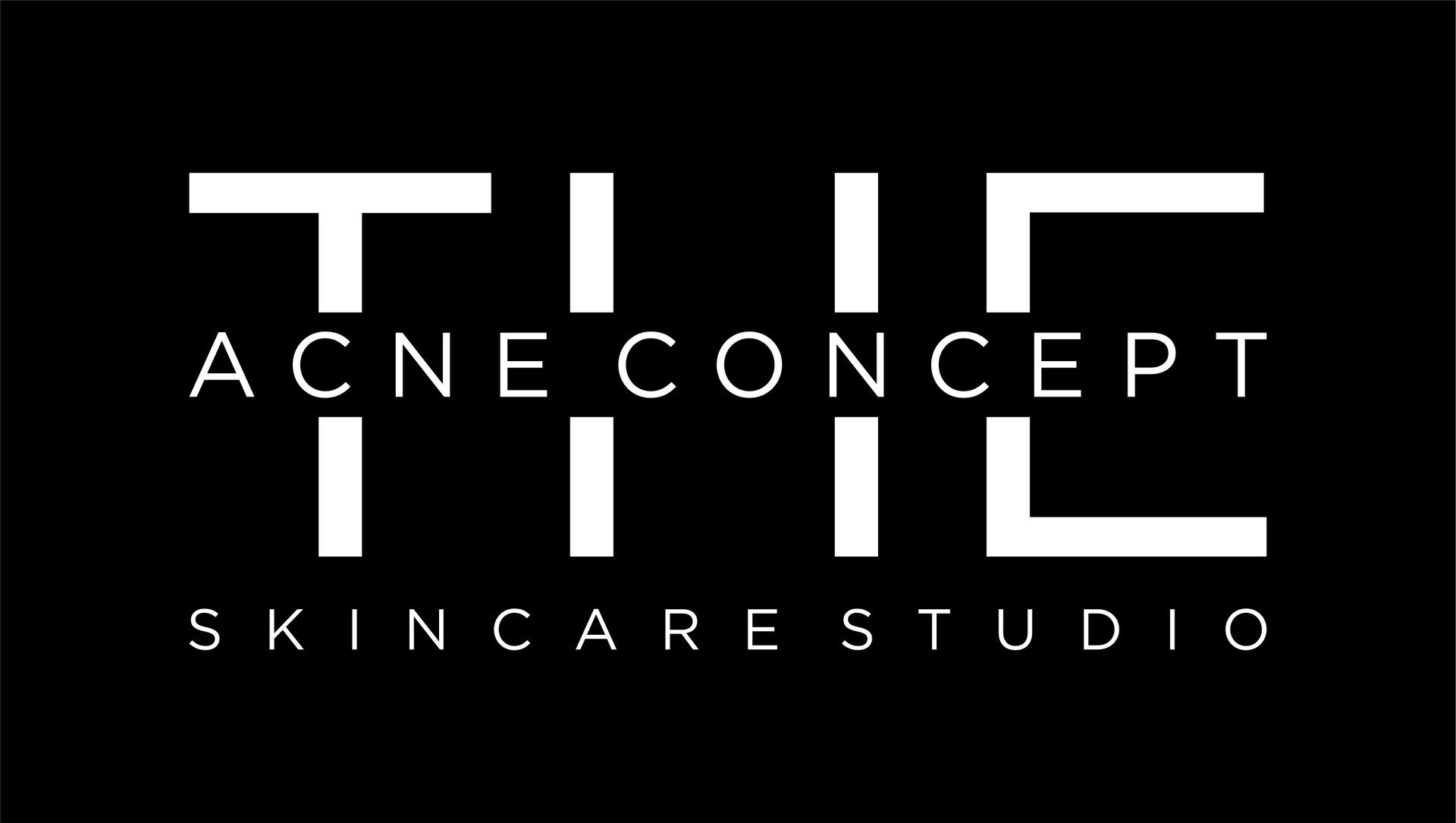The Acne Concept Blog
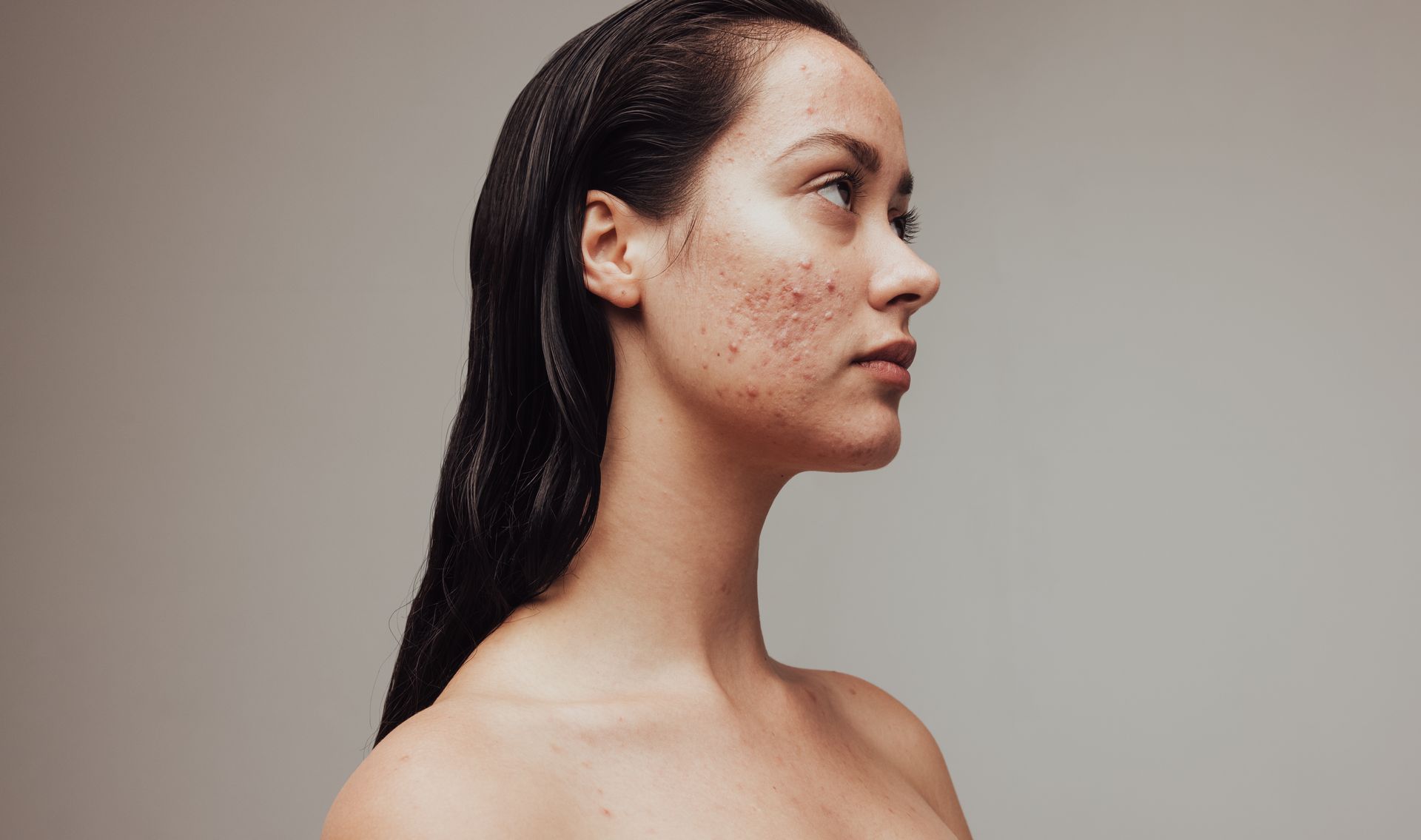
Acne is often seen as just a skin condition, but it can be deeply emotional for many. The stigma surrounding acne can lead to feelings of shame, self-consciousness, and even social withdrawal. You're not alone if you've ever avoided a mirror, skipped a social event, or felt like your skin defines your worth. But it's time to break up with acne shame and embrace self-love instead. Acne does not define you, and your self-worth isn’t tied to the clarity of your skin. Let’s explore how to shift your mindset from self-criticism to self-compassion and take steps toward feeling confident in your own skin, regardless of where you are in your skincare journey.
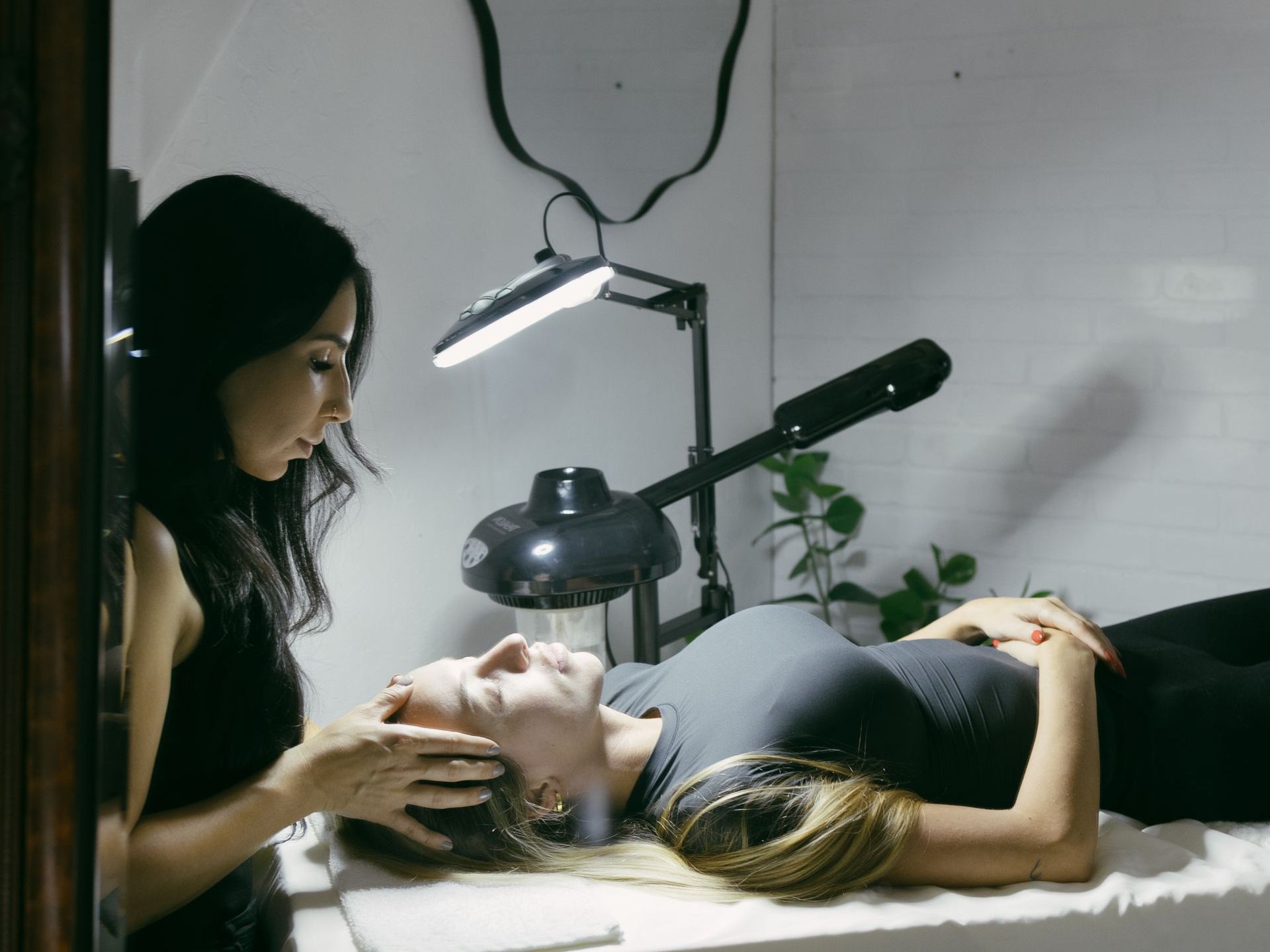
Dealing with acne can feel overwhelming and frustrating, especially when you've tried countless products and treatments with little success. That’s where working with a Face Reality Acne Specialist At The Acne Concept can make a difference. As certified Face Reality specialists, we’ve helped countless clients achieve clear, healthy skin through personalized care and evidence-based methods. Here’s why partnering with the Acne Specialists at The Acne Concept is the game-changer your skin has been waiting for.
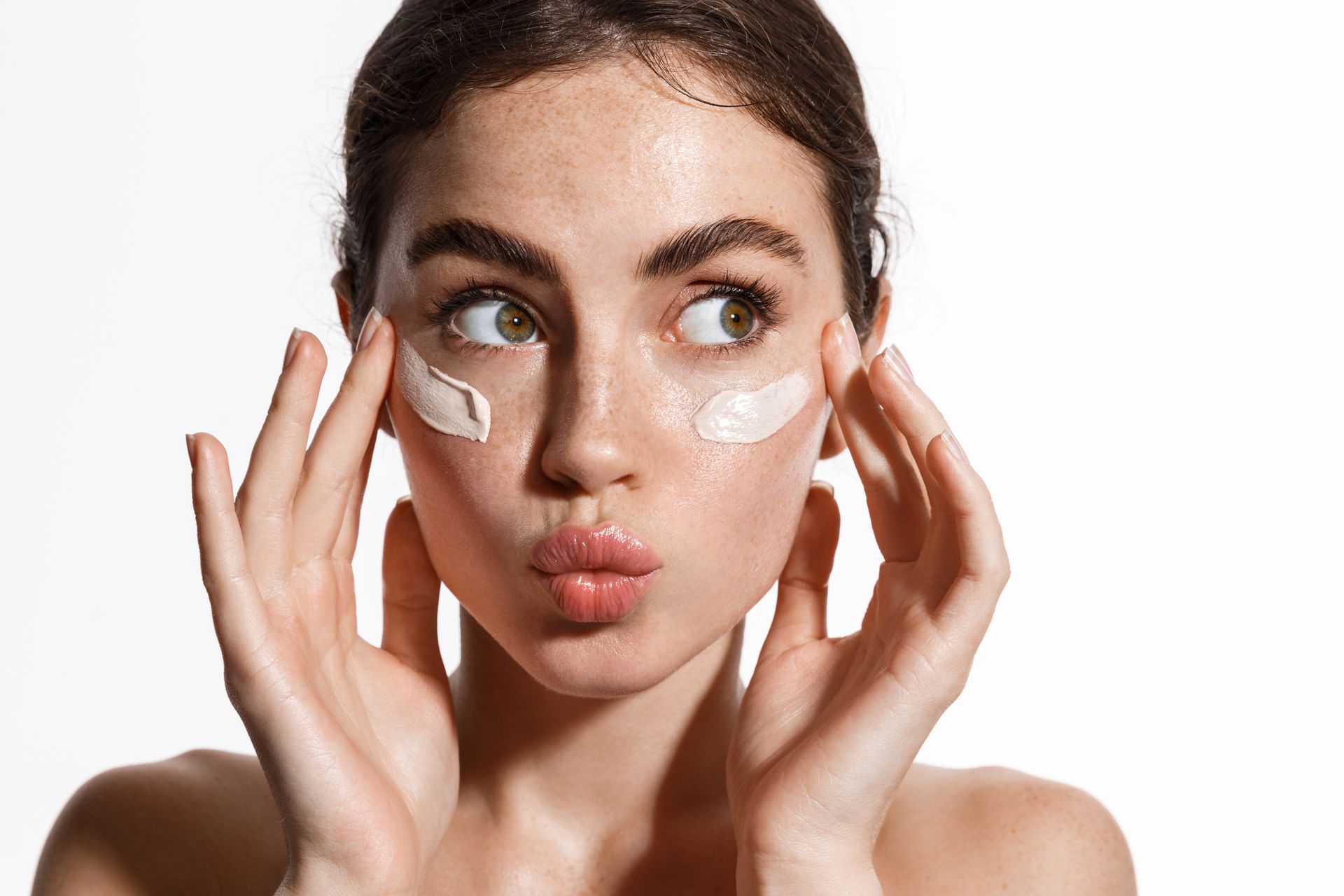
As an acne specialist, one of the most common questions is: “Which sunscreen is best for my skin, especially if I’m acne-prone?” Sunscreen is vital to any skincare routine, but choosing the right one can make a significant difference, particularly for those with acne-prone or sensitive skin. The debate often centers around two types of sunscreen: chemical and physical (also known as mineral). In this post, we'll break down the differences between chemical and physical sunscreen and help you determine which is best for your skin type. What is Chemical Sunscreen? Chemical sunscreens absorb UV rays and convert them into heat, which is then released from the skin. They contain active ingredients like oxybenzone, avobenzone, and octocrylene, which penetrate the skin to absorb harmful UV radiation. Key Features: Absorbs UV Rays: The chemical ingredients soak into the skin and absorb the sun’s rays, transforming them into heat. Thinner Consistency: Chemical sunscreens tend to have a thinner, more lightweight texture, making them easier to apply and ideal for daily use. Water-Resistant: Many chemical sunscreens offer good water resistance, making them suitable for swimming or heavy exercise. Pros: Less Visible: Because chemical sunscreens are often clear and lightweight, they don’t leave a white cast on the skin. Better for Active Use: Chemical sunscreens' water-resistant formulas make them ideal for people who sweat or spend time in the water. Cons: Can Irritate Sensitive Skin: The chemical filters in these sunscreens may cause irritation or allergic reactions, particularly for people with sensitive or acne-prone skin. Needs Time to Activate: Chemical sunscreens need about 20 minutes to absorb into the skin and start working fully. Pore-Clogging Ingredients: Some chemical sunscreens may contain oils or comedogenic ingredients that can clog pores and trigger breakouts. What is Physical Sunscreen? Physical sunscreens, also known as mineral sunscreens, create a physical barrier on top of the skin that reflects UV rays away from the skin. These sunscreens typically contain active ingredients like zinc oxide and titanium dioxide, which sit on the skin’s surface rather than absorbing into it. Key Features: Reflects UV Rays: Physical sunscreens deflect UV radiation away from the skin, acting like a shield. Instant Protection: Physical sunscreens work immediately after application, offering immediate protection from the sun. Pros: Gentler on Sensitive Skin: Physical sunscreens are less likely to cause irritation or allergic reactions, making them a better option for those with sensitive or acne-prone skin. Non-Comedogenic: Zinc oxide and titanium dioxide are non-comedogenic, meaning they won’t clog pores or exacerbate acne. Immediate Protection: Unlike chemical sunscreens, physical sunscreens offer immediate protection without needing time to absorb. Cons: Thicker Texture: Physical sunscreens tend to have a thicker consistency, which can feel heavier on the skin and take longer to blend in. White Cast: One of the main drawbacks of physical sunscreens is that they often leave a white or chalky residue, particularly on darker skin tones. Less Water-Resistant: Physical sunscreens may not be as water-resistant as chemical formulas, so they need to be reapplied more often during water activities. Which Sunscreen is Best for Acne-Prone Skin? Physical sunscreen is generally the better option for individuals with acne-prone or sensitive skin. Here’s why: Non-Irritating: Physical sunscreens are less likely to irritate sensitive or inflamed skin. Ingredients like zinc oxide are known for their anti-inflammatory properties, which can help soothe acne. Non-Comedogenic: Since physical sunscreens don’t clog pores, they are less likely to contribute to breakouts, which is especially important for acne-prone skin. Less Reactive: Physical sunscreens don’t absorb into the skin, so there’s less chance of causing reactions like stinging or redness. That being said, some individuals with acne-prone skin can tolerate chemical sunscreens, particularly if they choose formulas labeled as “non-comedogenic” or “oil-free.” However, it’s essential to patch-test new products to ensure they don’t trigger any adverse reactions. Sunscreen Tips for Acne-Prone Skin Choose Oil-Free Formulas: Look for oil-free and non-comedogenic sunscreens to avoid clogging your pores. Lightweight Textures: If you prefer chemical sunscreens, opt for lightweight, gel-based formulas that are less likely to cause breakouts. Reapply Regularly: Sunscreen should be reapplied every two hours, especially if you’re spending time outdoors or sweating. Wear Sunscreen Daily: Even on cloudy days, your skin is exposed to UV radiation. Make sunscreen a daily part of your skincare routine. Conclusion Both chemical and physical sunscreens offer protection from harmful UV rays, but if you have acne-prone or sensitive skin, physical sunscreen may be the better choice. With its non-comedogenic and soothing properties, physical sunscreen can protect your skin without the risk of irritation or breakouts. However, the most important factor is to wear sunscreen daily, regardless of which type you choose, to keep your skin healthy and protected. At Acne Concept, we emphasize the importance of sun protection as part of a comprehensive skincare routine. If you're unsure which sunscreen is best for your skin type, or need recommendations, feel free to reach out. We’re here to help you protect your skin and keep it clear, healthy, and glowing!

When achieving clear, healthy skin, we often focus on topical treatments, skincare routines, and professional services. But have you ever considered nutrition's role in your skin's health? The saying "you are what you eat" holds a lot of truth, especially when maintaining a clear complexion. Let's explore how your diet can impact your skin and whether nutrition matters for clearing your skin. The Connection Between Diet and Skin Your skin is your body's largest organ, and like all organs, it relies on proper nutrition to function optimally. The foods you consume can support skin health or contribute to various skin issues, including acne, inflammation, and premature aging. While genetics, hormones, and external factors also play significant roles in skin health, diet is a critical piece of the puzzle that should be considered. Key Nutrients for Healthy Skin Certain nutrients are particularly beneficial for maintaining clear, healthy skin. Incorporating these into your diet can help support your skin from the inside out: Antioxidants: Why They Matter: Antioxidants, such as vitamins C and E, protect the skin from oxidative stress caused by free radicals. This protection helps prevent premature aging and supports skin repair. Sources: Berries, citrus fruits, spinach, nuts, and seeds. Omega-3 Fatty Acids: Why They Matter: Omega-3s are anti-inflammatory and can help reduce redness and irritation, making them beneficial for acne-prone skin. Sources: Fatty fish (like salmon and mackerel), flaxseeds, walnuts, and chia seeds. Zinc: Why It Matters: Zinc is essential for skin healing and can help regulate oil production, reducing the risk of clogged pores and acne. Sources: Shellfish, pumpkin seeds, chickpeas, and quinoa. Vitamin A: Why It Matters: Vitamin A is crucial for skin cell production and turnover. It helps prevent clogged pores and supports overall skin health. Sources: Sweet potatoes, carrots, leafy greens, and eggs. Probiotics: Why They Matter: Probiotics support a healthy gut, which in turn can improve skin conditions like acne and eczema by reducing inflammation and balancing skin's pH levels. Sources: Yogurt, kefir, sauerkraut, and kimchi. Foods to Avoid for Clear Skin Certain foods can benefit your skin, but others can contribute to skin problems. Being mindful of what you eat can help prevent breakouts and other skin issues: High-Glycemic Foods: Impact: Foods that spike your blood sugar, such as sugary snacks, white bread, and processed foods, can lead to increased insulin levels, which may trigger acne. Alternatives: Opt for whole grains, fruits, and vegetables with a low glycemic index. Dairy Products: Impact: Some studies suggest that dairy, particularly skim milk, may be linked to acne. This could be due to hormones in milk that can influence your skin’s oil production. Alternatives: Try plant-based milk alternatives like almond, oat, or soy milk. Processed and Fried Foods: Impact: These foods can cause inflammation and may contribute to skin issues like acne and premature aging. Alternatives: Choose whole, unprocessed foods, and cook with healthier fats like olive oil. The Importance of Hydration While not a nutrient per se, water is vital for skin health. Staying hydrated helps your skin maintain its elasticity, reduces dryness, and supports detoxification processes that can keep your skin clear. Aim for at least 8 glasses of water daily, and consider eating water-rich foods like cucumbers, watermelon, and oranges to boost your hydration levels. A Holistic Approach to Clear Skin While nutrition is crucial for skin health, it's important to remember that clear skin often requires a holistic approach. This includes a combination of: A Balanced Diet: Rich in skin-friendly nutrients and low in potential irritants. Proper Skincare: Consistent and effective skincare routines tailored to your skin type. Stress Management: Reducing stress can help lower cortisol levels, which in turn can prevent breakouts. Adequate Sleep: Good sleep supports skin repair and regeneration. Conclusion Nutrition matters when it comes to clearing skin. While no food or nutrient can guarantee perfect skin, a balanced diet rich in vitamins, minerals, and antioxidants can significantly improve your skin's appearance and overall health. Pairing a nutritious diet with a proper skincare routine and healthy lifestyle choices is the best way to achieve and maintain clear, glowing skin. At Acne Concept, we believe in a comprehensive approach to skincare. If you're struggling with acne or other skin concerns, we can help you develop a customized plan that includes both professional treatments and dietary advice to support your journey to clear, healthy skin. Contact us today to learn more!
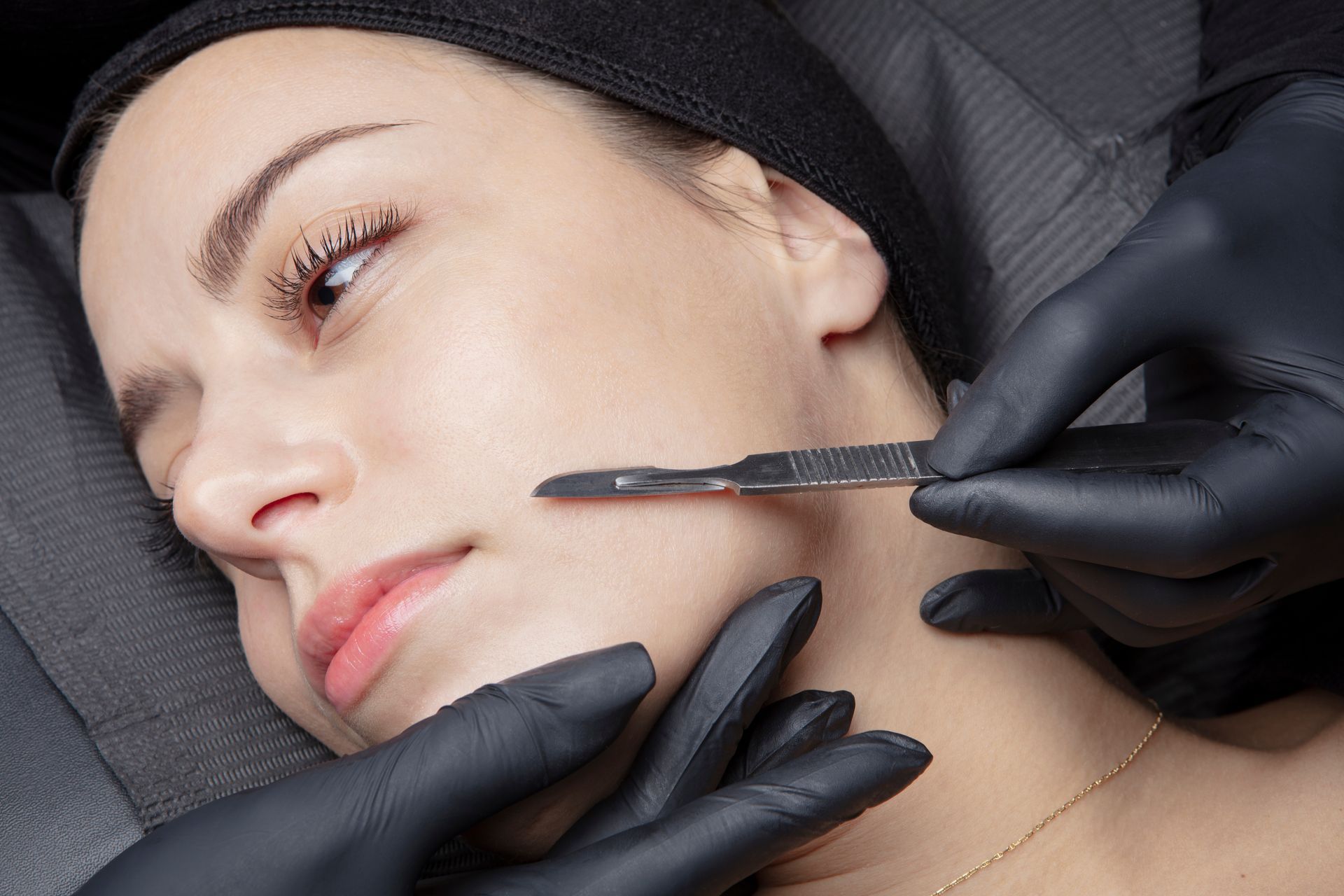
Dermaplaning has become a popular skincare treatment known for its ability to exfoliate the skin and remove vellus hair (peach fuzz), leaving your face smooth and glowing. Many people are trying to dermaplane at home with the rise of DIY beauty treatments. But is dermaplaning at home the same as with a professional esthetician? Let's explore the differences in tools, skin preparation, and treatment efficacy. Tools: Professional vs. At-Home Professional Tools: Medical-Grade Scalpel: Estheticians use a sterile, surgical-grade scalpel to perform dermaplaning. This tool is specifically designed for precision and effectiveness. Safety Measures: Professionals are trained to use the scalpel safely, ensuring minimal risk of cuts or abrasions. At-Home Tools: Dermaplaning Razors: Most at-home kits come with dermaplaning razors, which are less sharp than professional scalpels. These tools are generally safer for untrained hands but may provide a different level of exfoliation. Quality Variations: The quality of at-home tools can vary widely, and some may need to be more effective in achieving the desired results. Skin Preparation Professional Preparation: Thorough Cleansing: Estheticians begin with a deep cleanse to remove dirt, oil, and makeup, ensuring a clean surface for dermaplaning. Skin Assessment: A professional will assess your skin type and condition to tailor the treatment to your needs. Prepping Products: They often use specialized products to soften the skin and make the procedure more effective and comfortable. At-Home Preparation: Basic Cleansing: At-home dermaplaning typically involves a basic cleanse, which may not be as thorough as a professional preparation. Limited Assessment: Without professional training, assessing your skin’s needs and condition can be challenging. Simplified Products: At-home kits may come with general instructions and basic prepping products, which may not be as effective as professional-grade options. Treatment and Technique Professional Treatment: Expert Technique: Estheticians are trained to use precise, controlled movements to exfoliate the skin effectively without damaging it. Hard-to-Reach Areas: Professionals can reach difficult areas around the jawline and nose, ensuring a comprehensive treatment. Customized Approach: They can adjust their technique based on your skin's response, providing a personalized experience. At-Home Treatment: Learning Curve: There is a learning curve to using dermaplaning tools effectively at home. Improper technique can lead to uneven exfoliation or skin irritation. Limited Reach: It can be challenging to treat hard-to-reach areas on your own, potentially leaving some spots untreated. Risk of Injury: Without professional training, there's a higher risk of nicks, cuts, and skin irritation. Results and Aftercare Professional Results: Immediate Glow: Professional dermaplaning often results in an immediate, noticeable glow due to the precision and thoroughness of the treatment. Professional Aftercare: Estheticians provide tailored aftercare advice and products to ensure your skin heals properly and maintains its glow. At-Home Results: Varied Outcomes: Results can vary significantly based on your technique and the tools' quality. Essential Aftercare: At-home kits may not provide comprehensive aftercare instructions, which can affect the longevity of the results. Conclusion While at-home dermaplaning can offer some benefits, it doesn’t quite match a professional esthetician's level of care and precision. The tools, skin preparation, and techniques professionals use ensures a safer and more effective treatment. If you're looking for the best results and a truly glowing complexion, it’s worth investing in a professional dermaplaning session. At Acne Concept, our certified estheticians are trained to provide safe, effective, and personalized dermaplaning treatments. If you’re interested in experiencing the benefits of professional dermaplaning, contact us to schedule an appointment. Let us help you achieve the smooth, radiant skin you deserve!

Acne is a common skin condition affecting millions of people, causing physical discomfort and emotional distress. While many turn to over-the-counter treatments or general dermatologists for help, there's a specialized field dedicated to treating acne more effectively: acne specialists. Certified acne specialists, like those certified through Face Reality, offer targeted expertise and personalized care to help individuals achieve clearer, healthier skin. The Role of an Acne Specialist An acne specialist is a skincare professional with advanced training and certification in treating acne. They know about acne's causes, types, and the most effective treatment protocols. Unlike general skincare professionals, acne specialists focus exclusively on acne and related skin conditions, allowing them to develop tailored treatment plans that address each client's unique needs. Training and Certification Becoming an acne specialist requires rigorous training and certification from reputable institutions like Face Reality. This certification process involves: Comprehensive Education: Specialists receive extensive education on acne biology, different types of acne, and the factors contributing to its development. Treatment Protocols: They learn evidence-based protocols, including topical treatments, dietary recommendations, and lifestyle changes. Practical Experience: Hands-on training ensures that specialists can effectively assess and treat various forms of acne. Ongoing Education: Continuous education is often required to stay updated on the latest research and advancements in acne treatment. Personalized Acne Treatment Plans One of the key benefits of working with an acne specialist is the personalized approach to treatment. An acne specialist will thoroughly analyze skin and consider factors such as skin type, acne severity, lifestyle, and diet. This allows them to create a customized treatment plan that may include: Professional-Grade Products: Acne specialists have access to high-quality, professional-grade skincare products that are more effective than over-the-counter options. In-Office Treatments: Specialized treatments such as chemical peels, LED light therapy, and extractions are often part of the treatment plan. Home Care Regimens: Detailed instructions for a home care routine using products specifically chosen for the client’s skin type and acne condition. Diet and Lifestyle Guidance: Recommendations on diet and lifestyle changes that can help reduce acne flare-ups. The Face Reality Difference Face Reality is a renowned institution known for its effective acne treatment programs and certification of acne specialists. As a Face Reality-certified acne specialist, I have undergone extensive training to provide the best care for clients struggling with acne. The Face Reality method is a holistic approach that combines professional treatments with personalized home care routines, ensuring clients see significant skin improvements. Why Choose an Acne Specialist? Choosing to work with an acne specialist offers several advantages: Expertise: Specialists deeply understand acne and the most effective treatments. Customization: Treatment plans are tailored to the individual's specific needs. Support: Ongoing support and adjustments to the treatment plan as needed to ensure optimal results. Results: Higher success rates in achieving clear skin compared to standard treatments. Conclusion Acne can be a challenging condition to manage, but with the expertise of an acne specialist, achieving clear and healthy skin is within reach. As a certified acne specialist through Face Reality, I am dedicated to helping clients overcome acne with personalized, effective treatment plans. If you're struggling with acne and looking for a targeted, professional approach, consider consulting with an acne specialist to start your journey towards clearer skin today. Feel free to reach out if you have any questions or would like to schedule a consultation. Together, we can create a customized plan to address your specific skin concerns and help you achieve the clear, beautiful skin you deserve.
